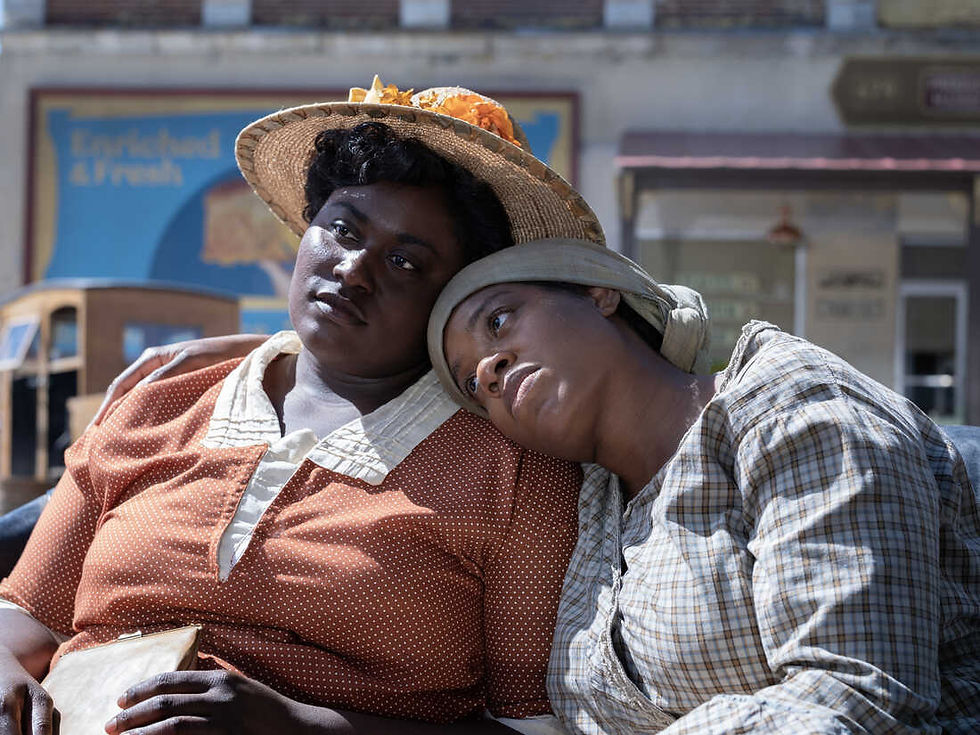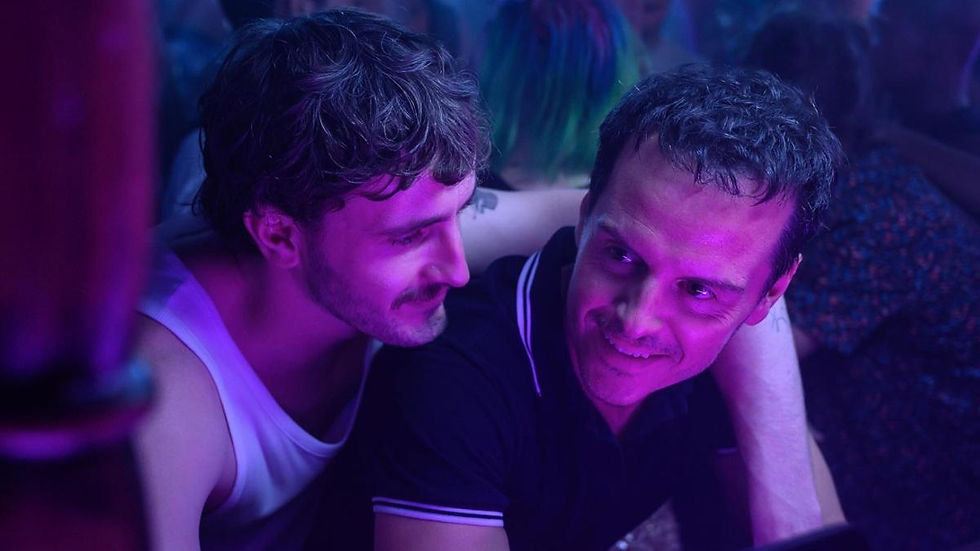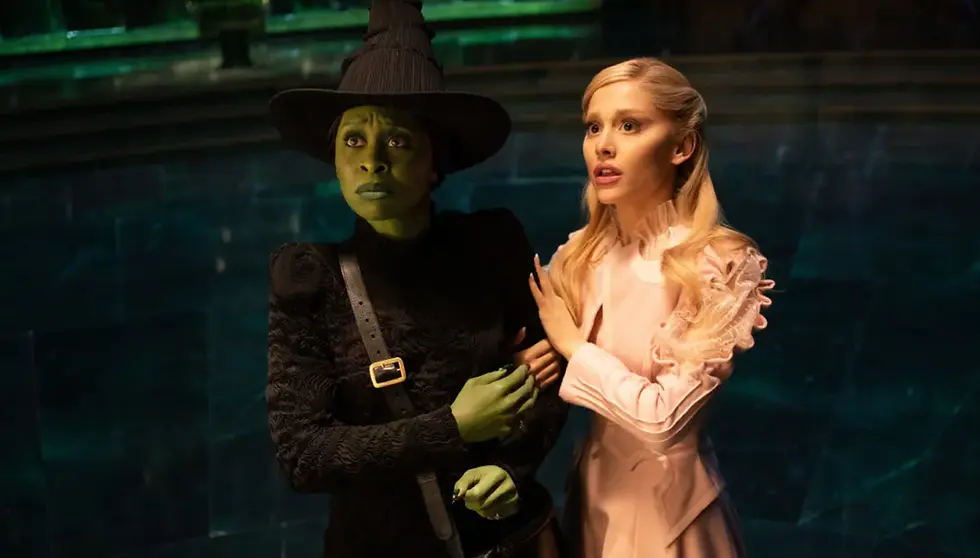The Color Purple / All of Us Strangers
- comaweng
- Jan 28, 2024
- 4 min read

I saw two films recently, on separate weekends, and I wasn’t going to bother saying anything about either of them, as I thought they were both a bit ‘meh’. But then they are being adored – and I mean ADORED – by various other people, so I’ve circled back to having another think about them. The Color Purple is a movie adaptation of a stage musical adapted from a novel, and it’s a spectacle, with the big musical numbers, at least a couple of which were in the style of gospel church tunes, being extraordinarily enjoyable. Even stubborn and stiff little me, sat in the cosy Curzon Cinema in Mayfair (no less) was tapping his foot.
I passed a poster promoting the film which said something about leaving the cinema feeling joyful, which a fellow theatre critic and I found bizarre: what on earth is so joyful about The Color Purple? There’s a redemption of sorts by the end (of the stage show), but all of the protagonists have been hit hard, in more ways than one, by preceding events, and the scars, physical and psychological, run deep. I found this new movie adaptation (there was another one, before my time, in 1985) too saccharine in the second half to be convincing.
It is, to be fair, a well-made film. The costumes are right. The choreography is right. The scenery is beautiful when it needs to be. Celie (Fantasia Barrino) sustains some horrifying abuse at the hands – and cock – of her husband, known only to her as Mister (Colman Domingo), back in the days when a man on a horse could come riding up to someone’s father, demand their daughter in marriage, and get her. While her vindication is very much deserved, it just felt (to me, anyway) an upturn firmly in the realm of fantasy. By the end of the movie, she is running her own store in her town’s high street, and has held an Easter Day luncheon, out of doors, for friends and extended family.
Even in this day and age, let alone back then, a store run by a black woman is liable to arson attacks, vandalism and theft, or otherwise some shitty landlord would hike up the rent so much she would have to move premises, or close down altogether. All of those situations are, I appreciate, plights suffered by independent retailers of all ethnicities. “I’m here!” Celie insists. The outdoor luncheon was frankly dangerous, and probably wouldn’t even happen – a bunch of black people gathered, America being what it was then and what it is now, with no security, liable to be shot at, or otherwise rounded up and kidnapped, maybe never to be seen again. They got a taste of it when Sofia (Danielle Brooks, utterly amazing) has an encounter with the local mayor’s wife. Let’s just say it was many years before Sofia was fully herself again.
One can always dream, of course, and there were sobs from some other cinemagoers at the screening I attended. But there was a strong disconnect between the harsh realities of Celie’s life and times and the sugary sweet and tidy resolution of various plot strands.

All of Us Strangers was only on my radar because I had an evening free (a rare thing these days, though I wouldn't want it any other way), and because of its principal cast – Andrew Scott, Paul Mescal, Claire Foy and Jamie Bell. Writer and director Andrew Haigh has created a part-fantasy world of his own, strongly influenced by his own upbringing, which is usually a red flag for me, as though he were vicariously living out a mid-life crisis of sorts through the medium of a movie.
Frankly, I found it rather confusing. I think it was meant to be, in the sense that the lines between fantasy and reality were blurred to begin with, but it is nonetheless Adam’s (Scott) lived experience – but it’s a very odd one. Hardly anyone else has moved into what is a brand new block of flats, except for Harry (Mescal). Cue borderline pornography as we watch them do their thing in bed. Foy and Bell play Adam’s parents, who because they died in a nasty accident, are frozen in time, and exist only in Adam’s imagination, such that in scenes where they appear together, Adam is a bit older than his own mum and dad.
It was painfully slow, and on a Friday evening, at the end of the working week, I struggled to maintain interest. I can’t relate to Adam’s missing his parents and the comfort of the family home, partly because I have never had to come out to family (one would have to happen to bend that way in the first place and all that). My father has died, and my mother is on the other side of the world, continuing to spout vicious evangelical bile about how everyone except herself is bound for the eternal conscious torment of the damned in Hell because we’re not living as religiously and righteously as she would like. I do not miss their company one bit.
Oh, and all of Adam’s trains turned up and ran to schedule – he was never caught out by delays, cancellations or industrial action. But if The Color Purple was a tad too happy, All of Us Strangers was a tad too melancholy. Taken together, they are, in a sense, the perfect combination: one balancing out the other. All of Us Strangers would have deep and meaningful poignancy for those who can identify more strongly with Adam – regardless of sexual orientation. It was a bit tortuous, if I’m perfectly honest – I didn’t hate it, but it did seem like Adam continued to suffer with inner demons for far longer than he should have, and by the time the credits rolled out, it wasn’t clear whether his mental wellbeing was any stronger.




Comments